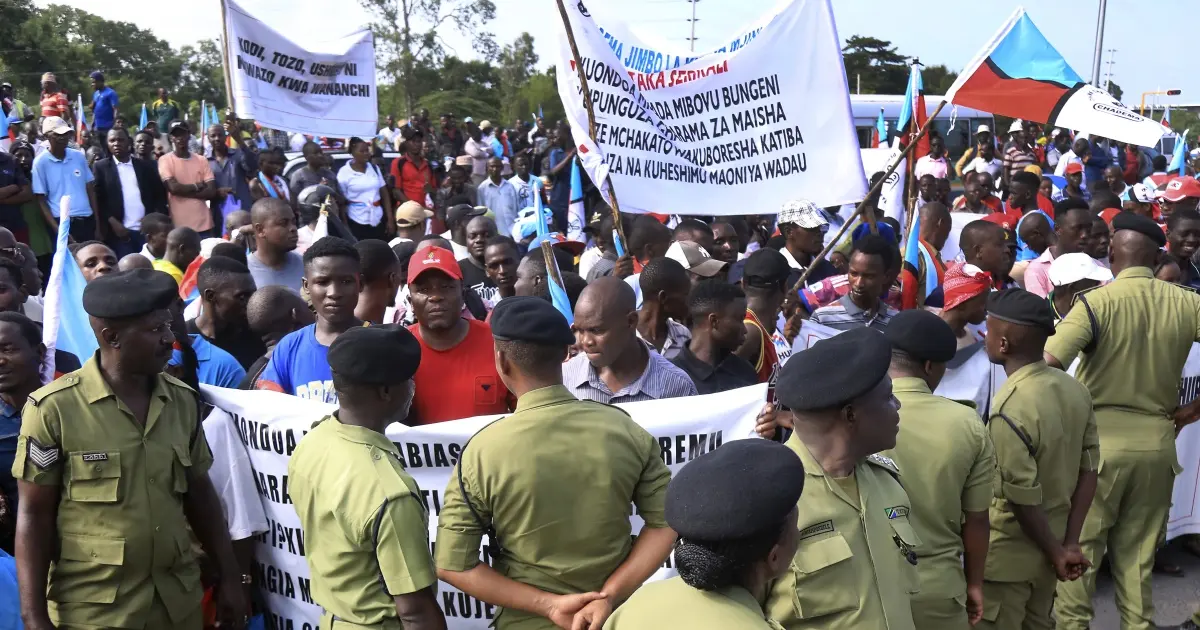Tanzania is grappling with a disturbing surge in abductions, torture, and enforced disappearances targeting activists, opposition figures, and outspoken critics of the government as the country edges closer to its general elections. Survivors, families of victims, and human rights groups are raising the alarm, accusing authorities and security forces of complicity, while the government continues to deny involvement.
One of the most chilling accounts comes from Edgar Mwakabela, a social media activist popularly known as Sativa, who was abducted on 23 June 2023 on a highway in Dar es Salaam. He recounts being handcuffed, blindfolded, and viciously beaten by his captors, who struck him with the flat side of a machete while demanding to know why he criticized the ruling Chama Cha Mapinduzi (CCM) party. After being transported over 1,000km to the remote Katavi region, Sativa says he was dragged to a river in a wildlife park and heard the command to execute him. A bullet pierced his skull and shattered his jaw, yet miraculously, he survived after being abandoned and later rescued by rangers.
Sativa’s ordeal reflects a growing pattern of politically motivated violence in Tanzania. Abductions have become a regular occurrence, with police and social media users reporting missing persons nearly every week. Some reappear with stories of brutal torture, others are found dead, while many remain unaccounted for. Opposition party Chadema has even offered rewards for information on missing members, underscoring the severity of the crisis.
One of the unresolved cases involves 25-year-old portrait artist and activist Shedrack Chaula, who gained attention after posting a TikTok video in June 2024 where he burned a photo of President Samia Suluhu Hassan. Arrested and fined for cyber-harassment, he was abducted a month after his release. His father, Yusuf Chaula, has made desperate efforts to locate him, visiting detention facilities and police stations across the country, but to no avail. “If we knew he had died and been buried somewhere, at least we’d have a grave to visit,” he told the BBC, highlighting the anguish of families left without closure.
Opposition politician and activist Mpaluka Nyangali, widely known as Mdude, was also violently taken from his home in Mbeya in May this year in front of his wife and child. Blood stains at the scene revealed the brutality of the abduction. Despite filing a case in court, his wife has received no answers and continues to plead for his release, accusing police of complicity. The High Court dismissed her petition in July, a move activists described as a devastating blow to justice.
The crisis is not limited to Tanzanian citizens. Regional activists such as Kenyan Boniface Mwangi and Ugandan journalist Agather Atuhaire reported being detained, tortured, and sexually abused after traveling to observe the treason trial of opposition leader Tundu Lissu. They were later abandoned near their respective borders, sparking outrage and regional concern.
Human rights organizations, including Amnesty International and Human Rights Watch, have accused Tanzanian authorities of orchestrating many of these disappearances. UN experts have reported more than 200 enforced disappearances in the country since 2019 and warned of systemic torture being used to silence opposition voices. Despite repeated directives from President Samia Suluhu for police to investigate, no substantive action or accountability has followed.
Lawyers and activists argue that the absence of an independent justice system leaves victims vulnerable and fearful. Boniface Mwabukusi, president of the Tanganyika Law Society, notes that most victims are too afraid to pursue justice, fearing retaliation. “If you are in police custody and the same officers ask you to give a statement about your abduction, can you really go to them? You can’t,” he said, adding that many families resign themselves to fate and silence.
As the general elections approach, Tanzanians face an atmosphere of fear and uncertainty. While authorities insist that investigations are ongoing and blame some disappearances on personal disputes or self-staged abductions, rights groups warn that the unchecked pattern of violence against opposition figures and activists is eroding trust in institutions and stifling democratic freedoms. For families of the missing like the Chaulas and Mbugi, the silence from the state only deepens their pain, leaving them trapped between hope and despair.













Leave a comment